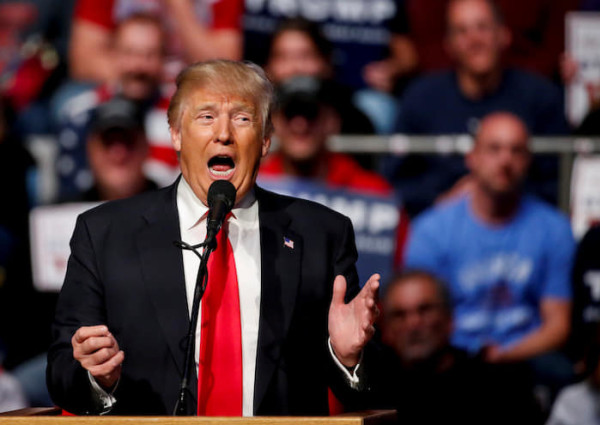

Mr Hollis moved overweight US equities and underweight emerging market shares when Donald Trump won the US election, but has since reassessed his view and reversed the position.
The manager said he became “less confident” with the trade at the beginning of the year, at which point he shifted to an overweight in emerging market equities and short dollar positions via the dollar index (DXY).
The new president has promised tax cuts and fiscal stimulus measures, but details have been slow to emerge. Meanwhile, the US dollar has gone into reverse, giving emerging markets a boost in the opening weeks of 2017.
“At the start of this year we became less confident, so we closed down that short emerging market equities, long US equities [position], and are now quite comfortable with emerging market equity exposure,” Mr Hollis said.
The fund’s previous overweight to US equities was unhedged and the current exposure to emerging markets is through local currencies, which the manager said was “reflective of the fact that I’m less bullish on the dollar”.
Currency effects are also playing on his mind elsewhere in the portfolio. While the fund’s UK equity exposure is primarily in large caps via FTSE 100 futures, Mr Hollis said he may look to diversify this exposure as it was “largely correlated with the sterling-dollar exchange rate”.
“There’s a realisation that we need to increase our exposure to beyond simply the 100 largest stocks,” he said.
The prospect of higher inflation in the UK and the US, and of further monetary tightening from the Federal Reserve, has prompted the manager to underweight fixed income.
He said that UK government bonds were often highly correlated with the US, meaning a US rate rise would have an impact irrespective of the Bank of England’s moves.
“With the US potentially raising rates, that adds upside momentum to yields in the US and therefore the UK,” he said.
“Add in the fact that inflation in the UK and the US are on the rise, and for the next few months we have upside surprise in inflation more likely than downside. This keeps yields moving higher.”
Mr Hollis is also avoiding corporate bonds in the belief that extended central quantitative easing (QE) programmes have pushed down credit spreads and caused the market to effectively miss a default cycle.
“Our view is that we’re very late cycle, and for that reason you would ordinarily anticipate credit spreads to be wider at this point than they are,” he said.
“The removal of QE, specifically if the European Central Bank continues to taper policy [later in 2017], is clearly a negative for credit spreads – so essentially we’re missing a default cycle.
“I think it would be nice if we had a default cycle to clear out some of the extreme valuation, and we may be able to get that if we no longer see QE from developed market central banks.”
The Growth Multi Asset fund has delivered 39 per cent over three years, while the IA Flexible Investment sector has returned 25.8 per cent in the same period, data from FE Analytics shows.



